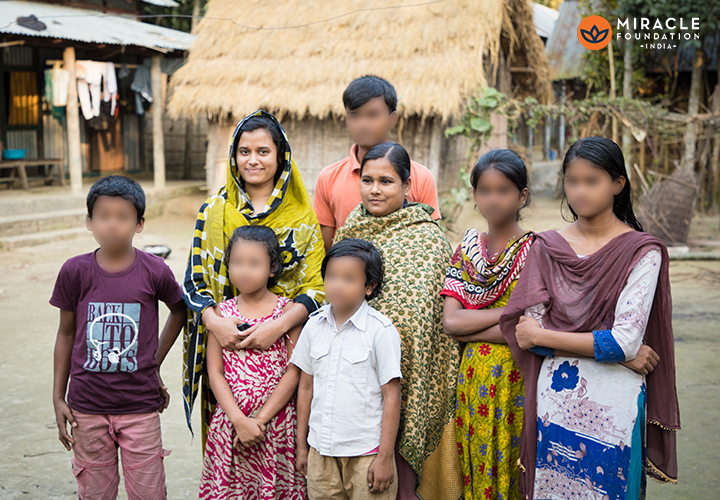
Fundamentally, poverty is a denial of choices and opportunities, a violation of human dignity. It means a lack of basic capacity to participate effectively in society. It means not having enough to feed and clothe a family, not having a school or clinic to go to; not having the land on which to grow one’s food or a job to earn one’s living, not having access to credit. It means insecurity, powerlessness, and exclusion of individuals, households, and communities. It means susceptibility to violence, and it often implies living in marginal or fragile environments, without access to clean water or sanitation (UN statement June 1998 – signed by the head of all UN agencies).
There are hundreds of millions of families in India who still struggle daily for a bowl of rice; education, health, hygiene, etc. are pure luxury for them. There are fair chances that a poor household economy may lead to the risk of undermining the children’s physical, psychological and cognitive capacities which are irreparable. The children growing up in these families are likely to pass poverty on to their children, perpetuating the poverty cycle.
Sending a child away from them is a painful decision for the parents, but given the circumstances, in many cases, they are forced to send her/him to a child care institution. Also, during our work of two decades in India, we have experienced that most of the children land up in CCIs due to poverty and lack of resources back home. In our mission to stop the separation at the source, it becomes important to support these families in a way that they can retain the child in the family and separation can be avoided.
To combat preventable separation, Miracle India Foundation has started a Livelihood Initiative for families. The initiative aims to connect families with central and state government schemes and welfare programs. There are more than fifty such government schemes which directly or indirectly impacts the wellbeing domains related to family and children. However, due to the lack of awareness and difficulty to access, it doesn’t reach the right beneficiaries. Miracle Foundation India understands this urgency and extensively works to build awareness of these schemes through its one-to-one and community-based activities.
Taking this further, using the Thrive Scale, families' and children's needs are identified and relevant government schemes are mapped. The miracle team supports the family in making required documents and applying with the concerned department/officer/committee to avail these schemes. Regular monitoring of the family and the child is done to understand their readiness in living as a family. Data collected is plotted on the Thrive Scale and the result helps us to understand the prevailing situation, based on various parameters.
Considering the issues/red flags prevailing in the family, derived out of the Thrive Scale, they may need to be linked with multiple schemes supporting the overall household economy and giving it a bit of stability. For example – the National Family Benefits scheme (NFBS) or Prime Minister Old Age Pension Scheme benefits the family financially but may not be sufficient. Linking the family to the Public Distribution System (PDS) or Antyodaya Anna Yojana (YAA) will further help them. Similarly, supporting children in getting scholarships for education, school uniform, and free books, bicycles to adolescent girls will help them in completing education. Likewise, the Department of Labor aims to support skill development and under the India Skill Mission families may get more sustainable livelihood opportunities.
We, at Miracle Foundation India, continue to map such schemes in the context of the need and skillsets of family members and make every effort to help them in availing required government schemes leading to a better standard of living.
Pritam Prasun
Associate Director, MEL


